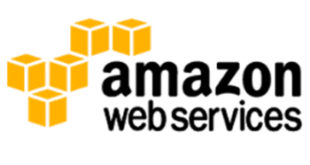As part of our Cloud Sector Spotlight, we chat to Monica Brink, EMEA marketing director at iland, about the benefits of being ‘born in the cloud’ and if it’s right for everyone.
What cloud services do you offer?
iland draws on 20 years of IT experience serving global customers and hosting critical workloads to provide private and public cloud, disaster recovery as-a-service and cloud backup services from data centre in eight different locations around the world including the U.S., U.K. and Singapore.
iland Enterprise Cloud Services offer the familiarity of a VMware-based cloud with the flexibility of a global data centre footprint. Superior levels of support, advanced security and compliance and best in-class infrastructure make iland’s cloud the natural extension to our customers’ data centres, for hybrid cloud agility.
We also recently launched iland’s new Enterprise Cloud Services – Advanced Security platform (ECS-AS), which brings together our Enterprise Cloud Services platform with security technologies, integrated into our industry-leading ECS console for cloud management.
What types of customers do you work with?
iland has a wide range of customers, covering many different verticals from technology to architecture and finance. From startups such as software development company All Things Code, to architectural firm Khatib and Alami, and factory automation provider Piab, the iland cloud is a key enabler to these organisations, allowing them to scale apps and programs, alongside being able to analyse data and protect sensitive information.
What are the benefits of being a company ‘born in the cloud’?
First and foremost, the cloud gives startups the ability to scale and compute resources up and down on demand, while capacity requirements are difficult for any business to predict; this is particularly challenging for start-ups.
Then there is also the flexibility to develop and test new apps quickly and ‘fail fast’, then try new ideas, increasing the speed of innovation and breakthroughs.
Also, being ‘born in the cloud’ means that the cloud migration task, which can be time-consuming and fraught with risks, can be avoided. These start-ups can deploy new apps to the cloud without needing to migrate systems and data.
Lastly, and what most may argue is the most important, is the ability to focus on the business, not on IT. For startups this can be a key benefit, as many have limited resources and often limited time to prove the business model.
Are there any disadvantages?
These startups need to be careful that they don’t get locked into a cloud vendor. Many startups develop apps in the cloud so there is the risk that all of their apps and data become very closely tied to a cloud vendor’s API and development systems. ?
What are some of the biggest benefits the cloud brings your customers?
Many of our customers have expressed the benefits of adopting the cloud. We asked Dan Harding, director of software development company All Things Code, who commented: “We have big growth plans. We have a few products ready to go into production so being able to configure those very quickly is key for us. The flexibility and scalability of our cloud resources allows us to do that.”
Architectural firm Khatib and Alami also expressed how the cloud has saved the company a vast amount of time, including many economic benefits. “All of the maintenance and management headaches and the fact we needed rapid scalability helped us come to the decision that having our own private cloud infrastructure was just too much of a hassle,” said Mohamed Saad, corporate IT manager at Khatib & Alami.
Is cloud right for everyone?
Yes, I believe that every business can benefit from using the cloud for certain workloads – whether that is dev/test, production or cloud-based disaster recovery.
Mobility and flexibility is key when moving to the cloud and CIOs struggle with the idea of moving all services to a cloud-based system, which could be stalling cloud adoption. While most companies will not be moving their entire IT footprint to the cloud anytime soon, there are clear benefits to using cloud agility for appropriate workloads.
That said, many organisations still see the cloud as storage in datacentres in a rack somewhere else. Once we get over this mind-set we can start thinking about bimodal IT and designing apps for the cloud, rather than moving apps designed previously to the cloud.
Cloud users are slowly changing as we move to a mobile workforce, therefore the challenge will be around making sure cloud fits the user, and with new technologies, this is easier to do today.?
What do you think will be the next big thing in the evolution of the cloud?
In the future we believe there will be more simplification of cloud services available. Cloud services won’t become more basic, but there will be ultimately better access to and visibility into these services.
Right now, the primary consumers of cloud are big organisations that can invest a lot of money in the cloud and also new organisations that have young development teams, which have been born into cloud.?
The piece of the market that is the most neglected is the mid-size organisation with a healthy IT department, which needs flexibility and many of the other benefits of cloud, but doesn’t necessarily have the resources. Therefore at iland we see the next evolution of cloud is a democratisation of the cloud, so it can become more straight-forward for those companies.
Are you planning to expand your cloud offering?
There are plans for the future to expand and develop our cloud offerings. This includes continued investment in delivering the highest levels of cloud security and compliance, enhancing our API toolkit to enable powerful tools for cloud developers, and also provide more extensive support for SaaS and Big Data applications.
Throughout January, PCR is running a dedicated Sector Spotlight on The Cloud – click the logo below for more articles
 PCR Tech and IT retail, distribution and vendor news
PCR Tech and IT retail, distribution and vendor news



